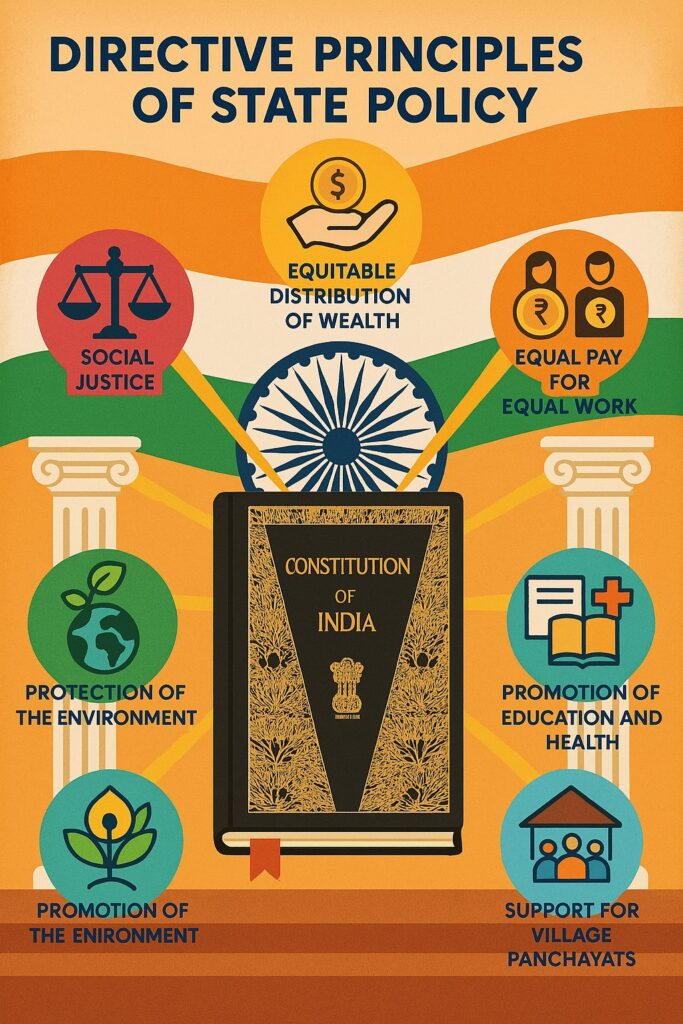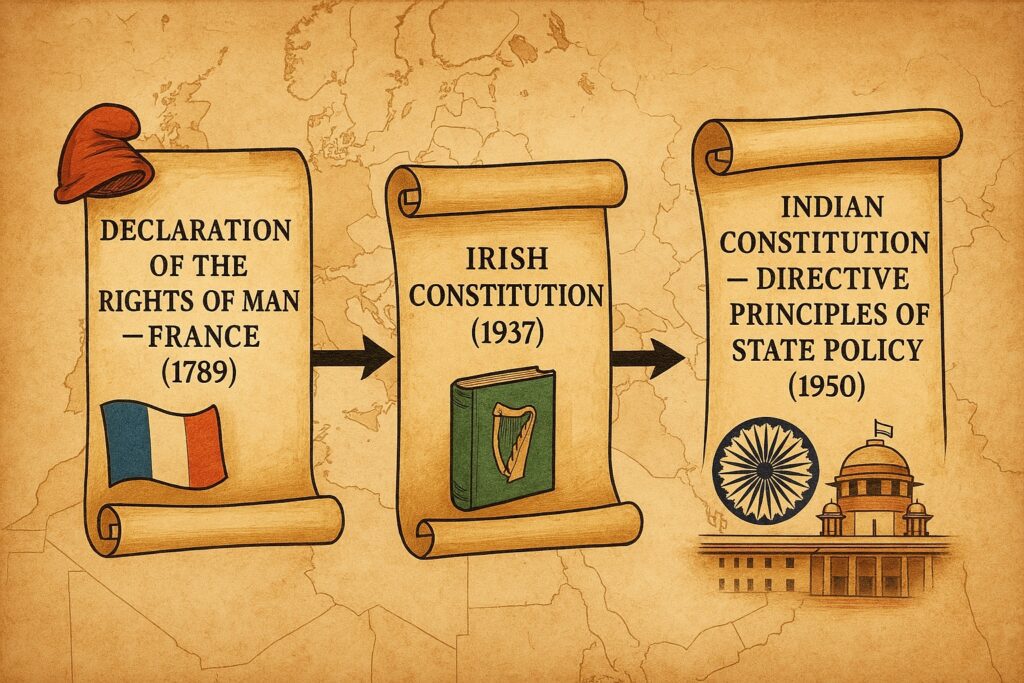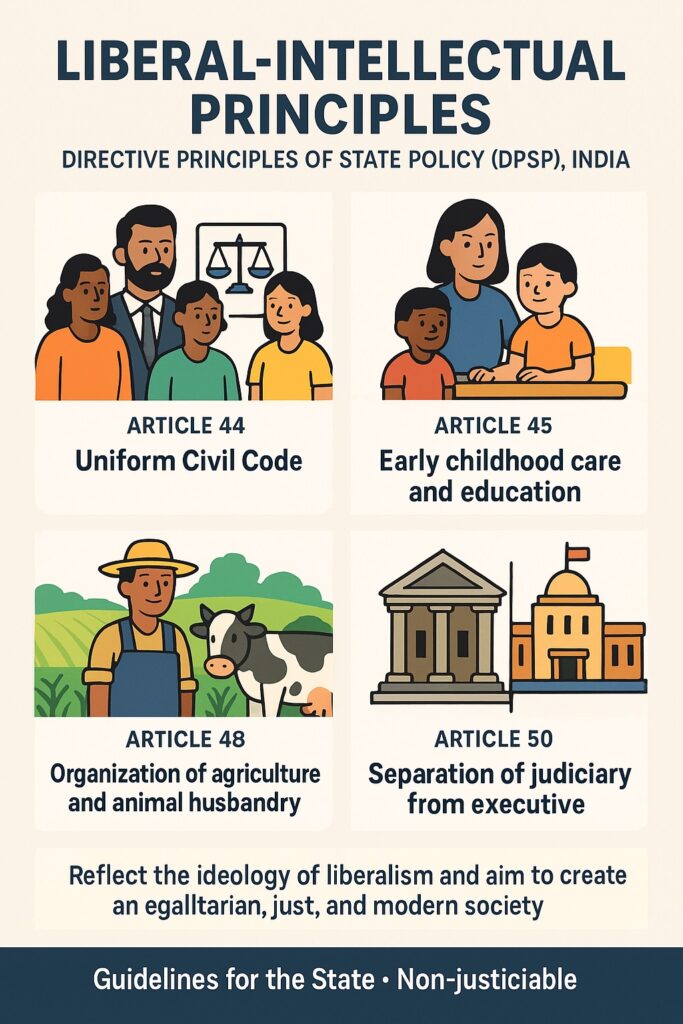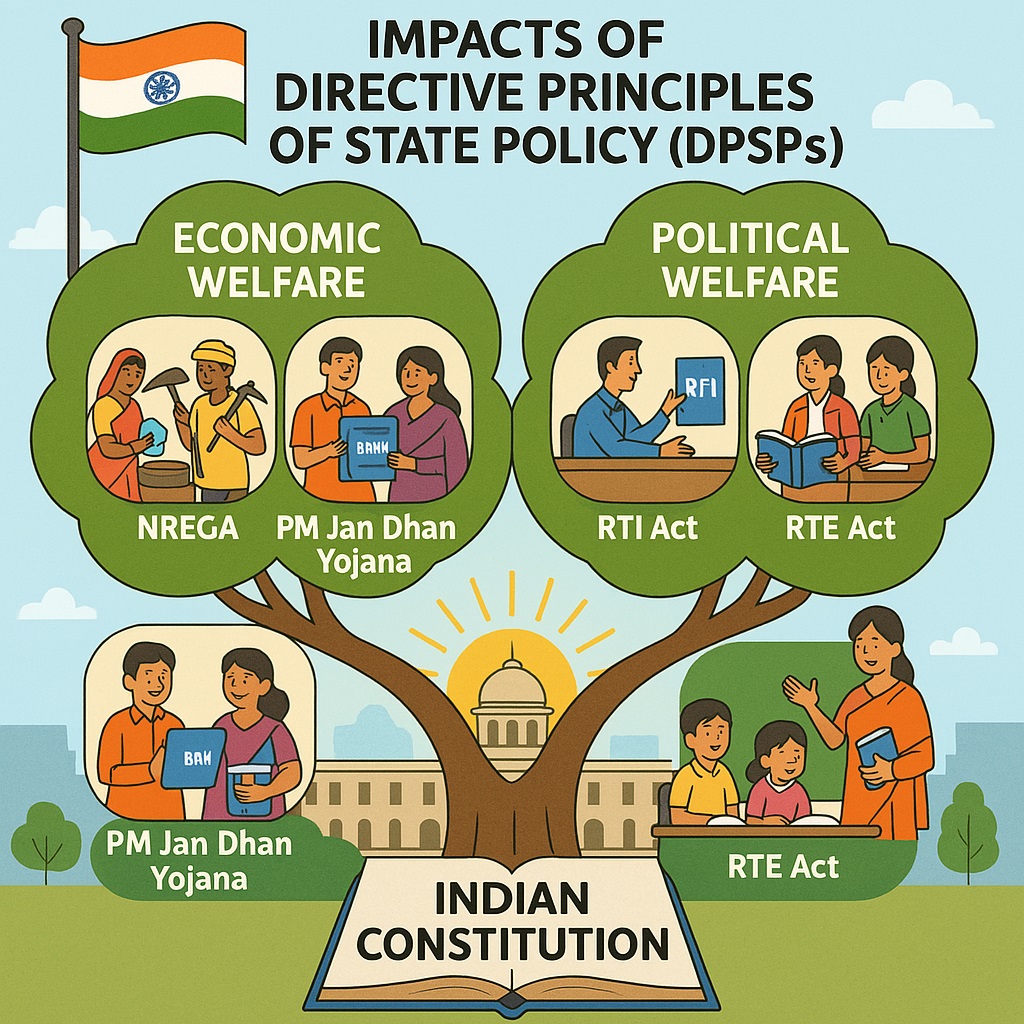The Directive Principles of State Policy (DPSP) in India are a set of guidelines and principles that are enshrined in the Indian Constitution. These principles serve as a framework for the government to promote social, economic, and political justice in the country. They are available in Part IV (Articles 36 to 51). They serve as guidelines or instructions to the central and state governments of India, aiming to establish a just society in the country. Though not enforceable by any court, these principles are fundamental in the governance of the country, and it is the duty of the State to apply them in making laws.

Table of Contents
Historical Background
The concept of DPSPs is borrowed from the Irish Constitution, which in turn was influenced by the Declaration of the Rights of Man during the French Revolution. The framers of the Indian Constitution included these principles to ensure social and economic democracy along with political democracy.

Classification of Directive Principles
The DPSPs can broadly be classified into three categories:
Socialistic Principles
These aim to promote the welfare state by securing social and economic justice to the people:
-
Article 38: Promote welfare of the people by securing a social order permeated by justice.
-
Article 39: Secure adequate means of livelihood, equal pay for equal work, protection of workers and children.
-
Article 41: Right to work, education, and public assistance in case of unemployment or disability.
-
Article 42: Provision for just and humane conditions of work and maternity relief.

Gandhian Principles
These are based on the ideals of Mahatma Gandhi and aim to establish a self-sufficient village economy:
-
Article 40: Organisation of village panchayats.
-
Article 43: Promotion of cottage industries.
-
Article 46: Promotion of educational and economic interests of SCs, STs and other weaker sections.
Liberal-Intellectual Principles
These reflect the ideology of liberalism and aim to establish an egalitarian society:
-
Article 44: Uniform civil code for all citizens.
-
Article 45: Early childhood care and education to children below 6 years.
-
Article 48: Organisation of agriculture and animal husbandry.
-
Article 50: Separation of judiciary from the executive.

Importance of DPSPs
-
Guidance to Government: They serve as a moral compass for the legislature and executive.
-
Foundation of a Welfare State: Aim to reduce inequality and improve quality of life.
-
Promote International Peace: Article 51 directs the state to foster respect for international law and peaceful coexistence.
-
Instrument of Social Change: Many progressive laws (like MGNREGA, Right to Education Act) are inspired by DPSPs.
Limitations
-
Not Justiciable: They are non-enforceable in a court of law.
-
Dependent on Political Will: Implementation depends on the commitment of the ruling government.
-
Conflict with Fundamental Rights: Sometimes, there’s tension between certain DPSPs and Fundamental Rights (e.g., Article 44 vs Article 25).
Landmark Judgments
-
Kesavananda Bharati Case (1973): The Supreme Court held that DPSPs can be implemented without violating the basic structure of the Constitution.
-
Minerva Mills Case (1980): Balanced the importance of Fundamental Rights and DPSPs, emphasizing that both are essential to the Constitution.
Impacts of Directive Principles of State Policy
The Directive Principles of State Policy have played a significant role in shaping India’s development over the years. They have been used as a guide for the government in formulating policies that have promoted social, economic, and political justice.
For example, the principles of economic welfare have led to the implementation of policies such as the National Rural Employment Guarantee Act (NREGA) and the Pradhan Mantri Jan Dhan Yojana (PMJDY), which have helped to alleviate poverty and promote economic growth.
The principles of political welfare have led to the implementation of policies such as the Right to Information Act (RTI) and the Right to Education Act (RTE), which have promoted transparency and accountability in governance, and provided access to education for all citizens.

Conclusion
The Directive Principles of State Policy, though non-enforceable, play a crucial role in shaping India’s socio-economic framework. They represent the vision of the Constitution’s framers for a just, equitable, and inclusive society. It is imperative for every government to strive towards their realization to fulfil the true spirit of the Indian Constitution.
Read: Indian Polity Notes